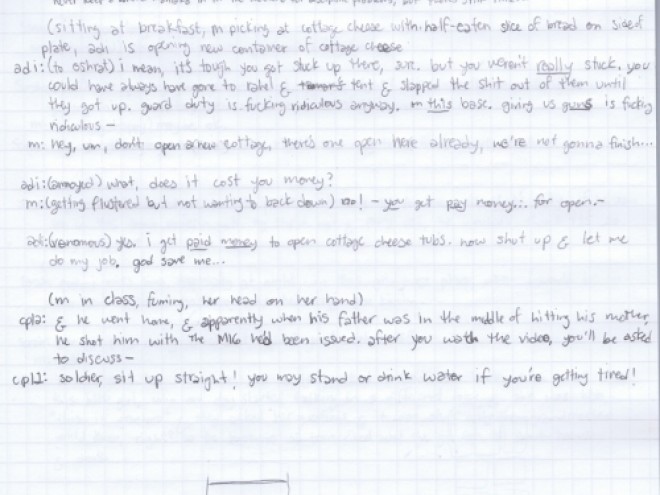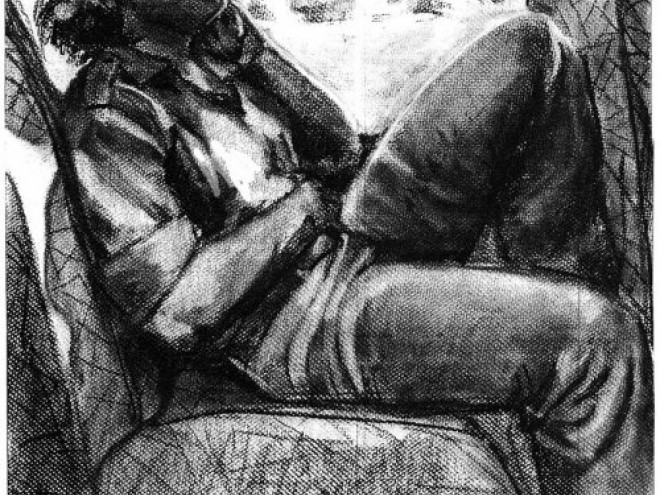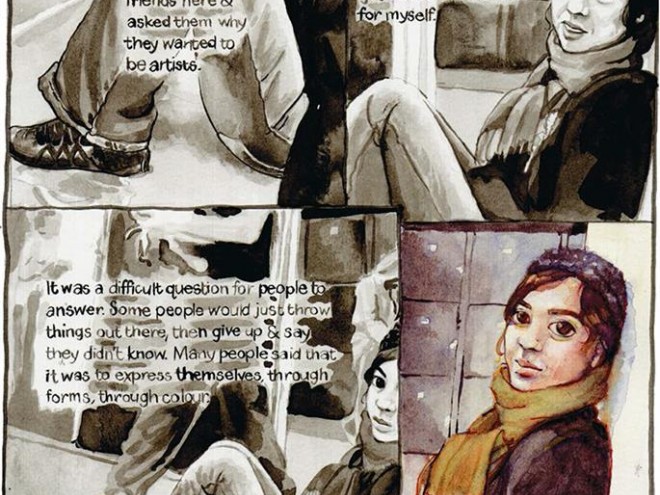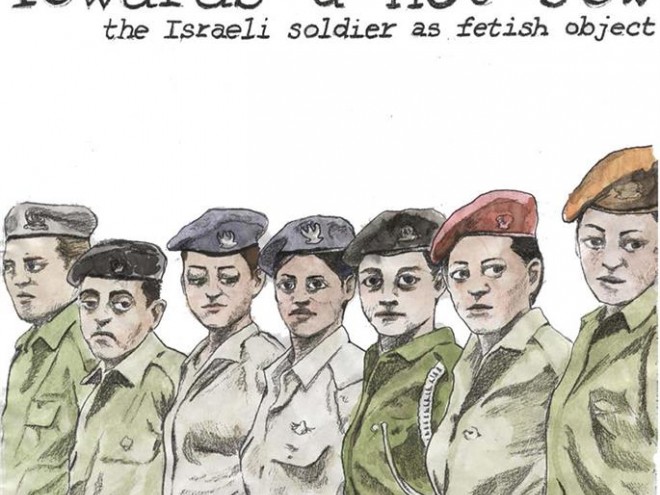In her last posts, Miriam Libicki blogged on taking Egged buses across Israel and on her process of drawing comic books. She has been blogging here all week for the Jewish Book Council and MyJewishLearning’s author blogging series.
I love exhibiting at comic book conventions. Without a big publisher — and, maybe more importantly, as a memoirist — the best way to introduce readers to my comics is to introduce myself to them, one at a time.
From my first comics, ripped out of my army diaries & turned in as assignments in art school, a year & a half after my discharge, my subject matter was controversial. My very first writing professor was dissatisfied with my examination of the social politics of burning the classified papers of a military infirmary, & implored me to address the politics of Israel’s existence instead. His critique, “It might be worth you considering who you feel is your intended audience — would it be your peers at Emily Carr, a community that is more familiar with the military situation in Israel, or some other group (or combination)?” led to the creation of the Jobnik manifesto.
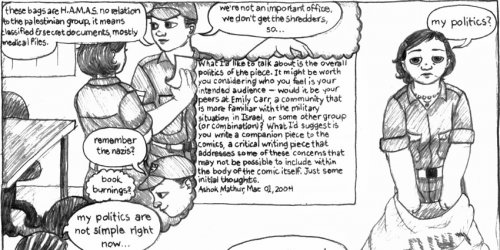
(detail from the first page of the Jobnik Manifesto. To view the complete comic,go here.)
The manifesto was exactly what I didn’t want to write when I began putting my very personal, very small stories to pictures. I thought I could reveal Israeli life & humanize Israeli soldiers without being the spokeswoman for Israeli policy & the latest news story out of the Middle East. But if I was being forced into that role, I might as well own it. The four-page manifesto is now the flier I give away at cons, and a cornerstone of my booth setup.
This is my booth setup:
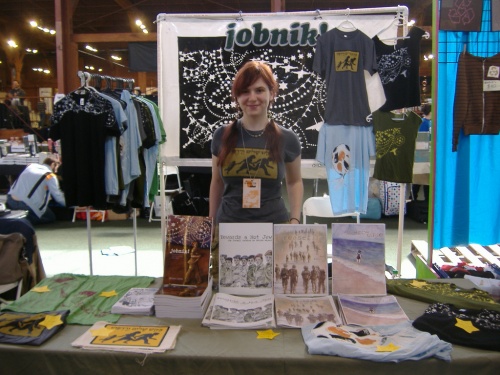
I wear my Jewiness & Israelitude not only on my sleeve, but across my chest and on a giant banner behind me. I have definitely become a magnet for everyone’s feelings about Israel & Judaism. Some people have really… interesting feelings. What follows are the parts of my table that get the most comment, & some adventures I’ve had trying to stay on everyone’s good side while being true to myself & not delivering a free two-hour lecture on the state of modern Zionism.
1. “Desire Peace and Chase After It.”
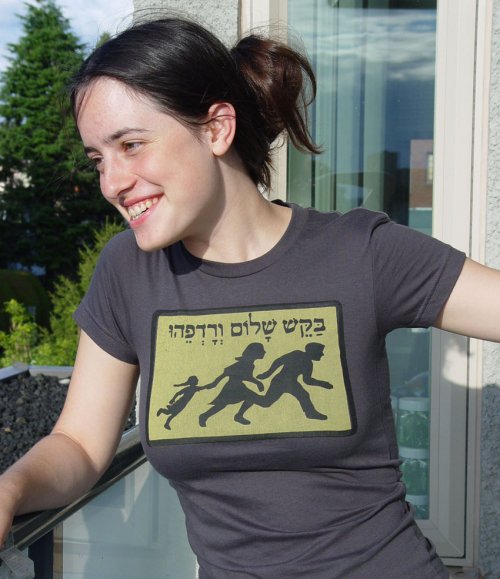
This shirt design is a mashup of my mother’s favourite Psalm (it’s 34:14) with an infamous road sign on I‑5 near the Mexico-California border. Many people take the t‑shirt as an opportunity to practice their rusty afterschool Hebrew. But even a completely nonspecific message of peace attracts political reaction-mongers.
An earnest young guy, who looked like he might be hiding a velvet kippah under his baseball cap, knew what it meant & the source, but asked, “What does that mean to you? What do you think it means, exactly, to chase peace?”
I was pretty sure he was fishing for my political stance, I imagined so he could classify me as Good for the Jews or Bad for the Jews. “It means — it means it’s not enough to sit around waiting for peace. You have to struggle for it.”
He gave up. I don’t think he ended up buying anything, but I felt I told the truth while avoiding pigeonholes.
“Oh,” said one middle-aged guy after I translated. “I saw it was Hebrew, so I assumed it must be Palestinians running from bombs dropped by my fellow Jews.”
I could not immediately imagine a response. He smiled triumphantly & walked away.
2. Towards a Hot Jew: the Israeli Soldier as Fetish Object
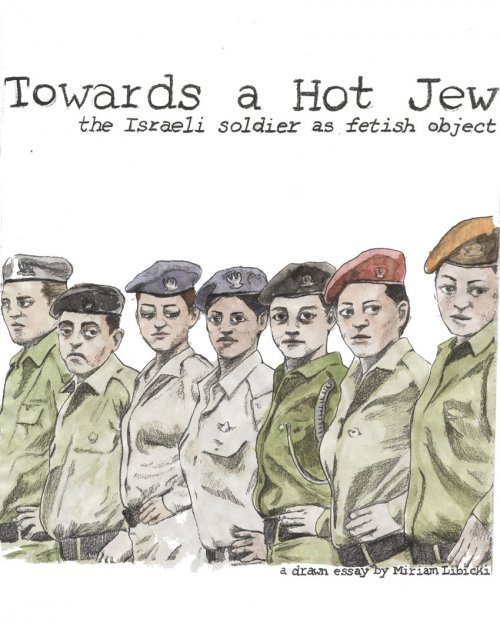
This essay was my senior project in art school. I didn’t originally intend to bind & distribute it as a comic, but it has become, as I say in my convention pitch, “my most popular and most controversial piece.” (I also say, “Makes a great gift for the hot Jew in your life!”)
Some people are horrified at such symbols of violence being sexualized at all (obviously, this is not at superhero-oriented comic cons). Many, many people want to tell me about Israeli soldiers they have lusted after. Most people, before reading it, have no idea if it’s a pro-Israel or anti-Israel screed, but are sure it’s one or the other. (Some people still feel that way after reading it.)
Another yeshivish-looking kid said to me with a big smile, “Thanks, but this book isn’t for me. I’m a Zionist.”
That time, I was quick enough to say, “Me, too.” We actually had a decent talk after that.
When “Hot Jew” was first published digitally, I got called an anti-Semite on the internet for the first time. One patriotic American Jew sent me a scolding email, saying, “I’m 17 years older than you, and I remember the pride Jews felt in the period after the Six Day War,” and that my essay was “parroted from what I imagine is the Northwest lefty-academic milieu that you live among.” That person went silent after I wrote back that I had not only lived in Israel, but served in the IDF.
I have yet to be called a Jew-hater by anyone who has completed IDF service.
Which brings us right up to…
3. jobnik!
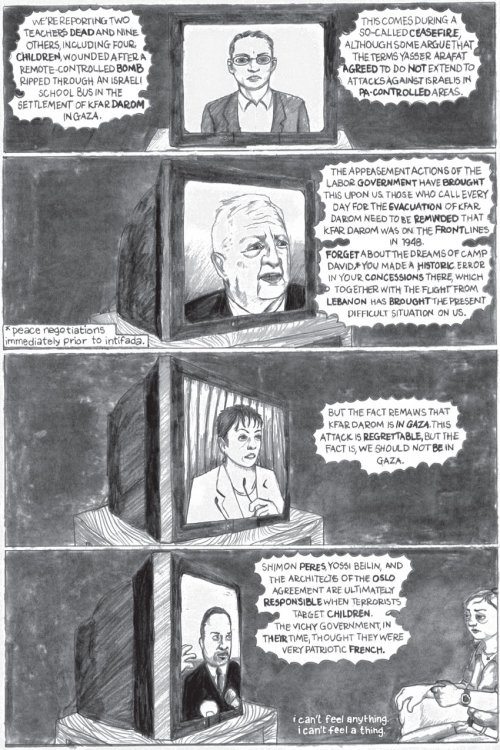
So I get it from the right for “Hot Jew,” & I get it from the left for jobnik! I try to hand out my manifesto to anyone who stops long enough to make eye contact. But since they can’t read it all while standing at the table, I have a brief spiel too, about how I was raised in Ohio, came to Israel on a year program, fell in love (with everything and everyone), made aliyah, joined the army, and was totally unprepared for it.
Some people come over very serious at the “joined the army” part. “Were you unprepared for it because of culture shock, or because of the actions of the IDF?” asked a young white guy in Toronto.
I acknowledged that it was really the culture shock; when I thought of bad actions of the IDF, I thought of government policies, & military strategies that were evil or heavy-handed, not the ground troops, I mean, I know there are violent racists among enlisted soldiers, but I didn’t know any, or I don’t think I did…
An olive-skinned college-age girl asked me why I volunteered for army service, at SPX. I explained that service is compulsory for Israelis, so if I was making aliya at age 18, I felt it showed the seriousness of my commitment to join the army like a real Israeli.
“Is joining the army the only way to be Israeli?” she asked.
I admitted that many Israelis do civilian national service, and some get out on health grounds. But it seemed to me that the best way to prove my non-tourist-hood was to enlist.
She was very calm but persistent. It slowly became clear that she was Palestinian-Israeli (or Israeli Arab, or 1948 Palestinian). My innocent youthful crush on Israel was suddenly a big hole I had dug for myself. I didn’t have too much to say after that. I handed her a manifesto and abortively described my other comics.
I felt so bad afterward that I waved her down, an hour later, when she passed back through the aisle. I said I was sorry I didn’t ask her name, or about her own story. As she told me about her peace activist work in D.C., I found myself blurting out all the names & organizations of friends of mine in peace & coexistence groups, until she recognized a name (or pretended to). I felt even more ridiculous. But better a clueless defensive well-meaning colonizer, I guess, than a violent racist.
Miriam Libicki has been writing and drawing the self-published comic book jobnik! since 2003. She has been blogging all week for Jewish Book Council and MyJewishLearning.
Miriam Libicki is a graphic novelist living in Vancouver Canada. Her 2008 Israeli Army memoir “jobnik!” has been used in over a dozen university courses. She teaches cartooning and illustration at Emily Carr University of Art and Design. She also makes a line of hand-silkscreened shirts and met her husband while following a nerd-folk band on tour.
